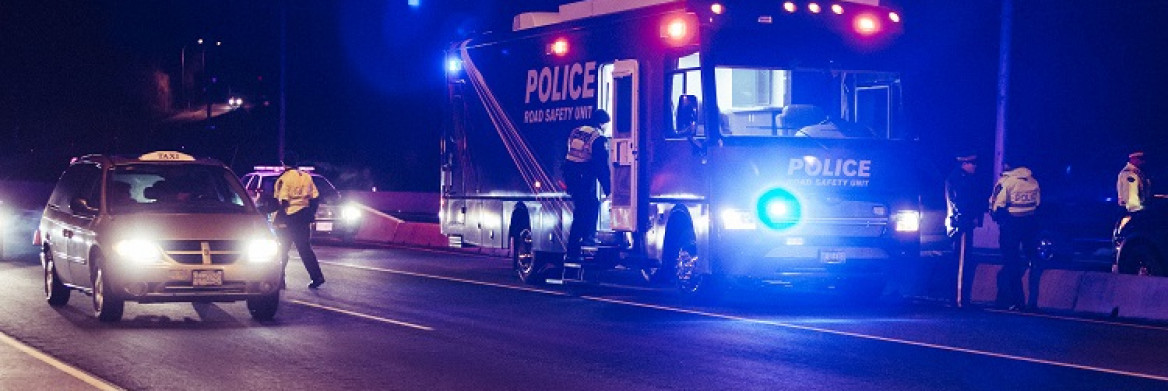The RCMP in British Columbia have an established mobile road-safety unit (MRSU) that has worked for years to get impaired drivers off the road. This year, the RCMP in Alberta are launching a similar program. Both initiatives are well equipped to nab motorists who get behind the wheel after drinking too much.
In B.C., the MRSU, also known as Alexa's Bus, has been touring the province since 2014.
It was named after Alexa Middelaer, a four-year-old girl who was killed by an impaired driver as she fed a horse in a rural area of Delta, B.C., in 2008. Alexa's Bus emerged through the fundraising efforts of Alexa's parents, family and friends, and with the support of businesses, community groups and the federal and provincial governments.
"They came to us that same year and asked: What can we do to make things better?
" says retired Insp. Ted Emanuels, referring to Alexa's parents, who approached the B.C. Association of Chiefs of Police Traffic Safety Committee. "Here's this innocent girl, a victim of impaired driving, and they wanted to help, so what happened to Alexa would never happen again.
"
Both Emanuels and Alexa's Bus program manager Sgt. Gerry Desaulniers are passionate when they talk about Alexa, how the mobile unit was created and what officers on the MRSU have accomplished.
Reducing fatalities
Police on Alexa's Bus have laid tens of thousands of charges against impaired drivers and, since 2010, the number of fatal crashes involving alcohol in B.C. has dropped from 111 to 53 in 2016.
The MRSU contains state-of-the-art equipment to process impaired drivers: roadside screening devices, radio equipment, Wi-Fi, surveillance cameras, washrooms and private rooms with satellite phone and cellphone available so suspects can contact their lawyers.
"You can do all the same things onboard Alexa's Bus as you can do at a detachment,
" says Desaulniers.
Through the centre of the MRSU's floor is a dotted line, which serves as the mark for the standardized field sobriety walk-and-turn test. During public tours, Desaulniers will hand guests a pair of goggles that mimic the effects of alcohol and drug intoxication and ask them to walk the line.
According to visitors, the goggles make it impossible to walk straight.
Desaulniers wants Alexa's Bus to tour throughout the province as much as possible to support police officers in the apprehension of impaired drivers.
"It's also designed to inform and educate people about Alexa's tragedy and the various dangerous driving behaviours we see on our roadways," he says. "
The ultimate goal is to reduce the number of serious injury and fatal collisions.
"
Rural roads
The RCMP in Alberta acquired a mobile breath testing vehicle in October 2017.
Sgt. Brent Robinson, an impaired driving specialist with the RCMP Traffic Unit in Alberta, says the goal is simple: catch more impaired drivers, especially in rural areas.
"I hope the number of impaired (caught) goes up,
" says Robinson, who noted that his urban colleagues regularly apprehend drunk drivers. "But it's especially challenging in rural areas where there are so many back roads.
"
Like Alexa's Bus, the Alberta unit will have the latest equipment, tools that are especially important at locations far from detachments.
"There's a ticking timeline with impaired drivers,
" says Robinson. "We have to get the first sample within two hours. If you have to drive two hours to get the guy to the nearest instrument, you're running into some legal complications.
"
He says Alberta's Mobile Breath Testing Unit will use resources more effectively.
"In rural Alberta, it's way more convenient for the members to test on site,
" says Robinson. "It's a lot quicker to process and you'll have less legal arguments over time issues.
"
The RCMP will also make the unit available to detachments throughout the year.
"When we know about upcoming events like rodeos, country fairs and reunions in the outlying areas of the detachments, then we'll show up with this Mobile Breath Testing Unit, which is clearly marked as a check stop. This will be a highly visible deterrent,
" says Robinson.
